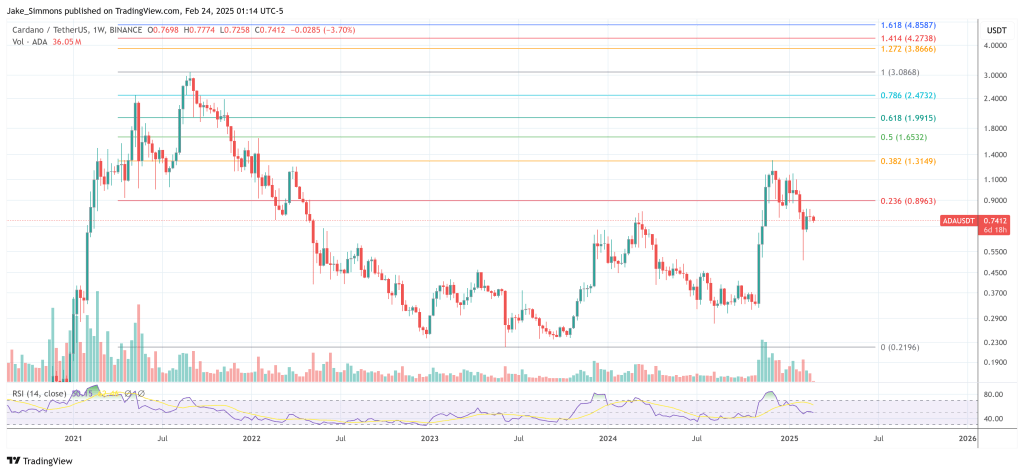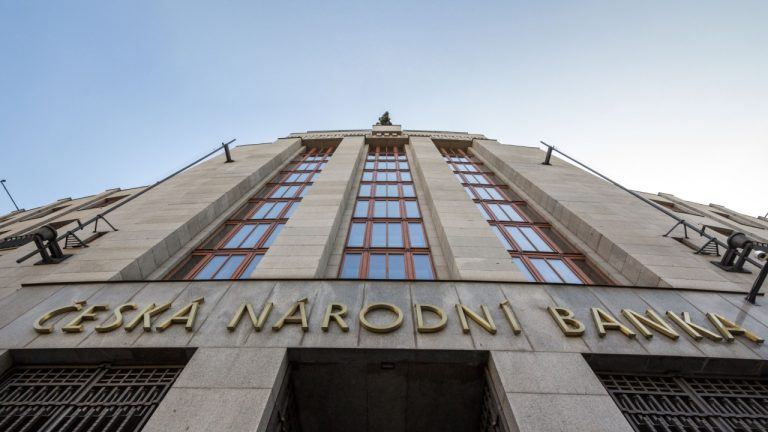TL:DR: Proof of Stake is a regressive capital tax system. It leads to the rich getting richer, subsidised by the poor. The post below explains why this is the case and why this is worrying from a security perspective as this leads to ever less security and decentralization over time.
I'm using ETH as an example in this post because the merge just happened but the same holds for other Proof of Stake cryptocurrencies.
"Staking is a great way to get passive income."
In ETH, staking rewards are a combination of block rewards, transaction fees (tips), and MEV.
- Block rewards are simple. Every time a block is added to the blockchain, the person that added the block is rewarded with X ETH.
- Transaction fees are slightly more complicated. There's a base fee, which is largely burnt, and "tips", which are an additional fee to get your transaction prioritized (see this article for more info).
- MEV is a whole other story. You can go down the rabbit hole here and start wondering how fair this is. In short, MEV is value that stakers can extract by including, excluding and changing the order of transactions in a block in their favor.
Projections on ETH's staking rewards differ, in this thread I use @dunleavy89's because they are easy to understand and seem reasonable. For his projections, see this image.
Using the base figures, there's a total reward of 11% for staking, with 1.1% deflation due to "fee burning", meaning a total reward of 12.1%. This seems pretty good - because it is, for those that can get the 12.1% return. If you checked @dunleavy89's figures, you'll see that most ETH is not staked. Out of ~120 mln total supply, only ~14 mln is staked. Why is this, when it seems like an easy way to set up a passive income stream?
Tiers of Ethereum stakers
There are multiple hurdles to staking. You need 32 ETH (~$50,000) to stake, or 16 ETH using Rocket Pool. You also need to have a dedicated computer connected to the internet 24/7. If you tick both those boxes: bravo, you're a tier 1 user and can get maximum rewards.
However - does this describe you? Do you have such a large amount of ETH and do you feel comfortable setting this up & maintaining it yourself? The most likely answer is no, which means you won't be a tier 1 user.
If you have sufficient ETH but lack the technical know-how, you can use "Staking as a service". You deposit your 32 ETH, but outsource the node operations to a third party processor (for a small fee). Bravo, you're a tier 2 user with tier 2 rewards!
Tier 3: Pooled staking has no minimum, you don't have to run a node, but you do still have to lock up some ETH that you then can't use. More importantly, you will be paying fees to the pool owner, usually about 10%. That's what you get for being tier 3.
Then there's tier 4, where you stake on an exchange. The fee they charge tends to be even higher than that of pooled staking. It's the easiest option by far, and the least profitable one when staking.
Summarizing: 4 tiers of staking.
- Stake minimum 16/32 ETH, run own node, full rewards.
- Stake minimum 16/32 ETH, outsource node, small fee paid.
- No minimum stake, no node, ~10% fees.
- No minimum stake, on exchange, ~20% fees.
Regular users
However, there's a hidden tier 5.
Tier 5 is the 80-90% of ETH holders that don't stake at all. These are the ones that are losing out.. hard. Whereas in the base scenario mentioned earlier the reward could be 12.1%, these tier 5 users get just 1.1%.
It might seem like this is not too bad. After all, even tier 5 gets some rewards. They're gaining 1.1% per year, just from ETH being deflationary. However, there are a few things to keep in mind here. First, "compound interest is the 8th wonder of the world". Those gaining most keep gaining most, week after week after week. Given that we're in the decentralized digital currency space, this increasing centralization of stakes and thus power is worrying, which I'll get back to. Second off, we've completely ignored the fact that fees exist for users on Ethereum, and that fee burning is the reason ETH is becoming deflationary in the first place.
According to Glassnode, there are ~4 million active wallets (holding a minimum of 0.1 ETH each). In the base case scenario we are counting on $3,840,000,000 or 2.4 mln ETH being paid in fees per year. That means, on average, over 0.5 ETH being paid, per address, per year, just in fees. Even if we take the "very conservative" estimate, where fees are far lower because there isn't much usage of the chain, it's 0.15 ETH paid per account per year.
4 million active addresses, with a market cap of ~$200 billion or 120mln ETH. Let's run some simple calculations with this. The average ETH holder has ~$50,000 worth of ETH, or 30 ETH. Note that this is an average ETH holder. You're probably seeing these figures and thinking "I hold far less", and you'd be correct. Let's roll with it. I'll explain why this analysis is far worse if we use realistic figures.
This "average" 30ETH holder pays average fees per year. From 0.15 ETH in the very conservative scenario to 1.05 ETH in the aggressive scenario. What happens to their ETH holdings after a year?
Before taking into account inflation/deflation, their holdings decrease, by between 0.15 (lowest fees) to 1.05 (highest fees) or 0.5% to 3.5%. This makes sense, they start with 30 ETH, pay fees, so they have less ETH at the end of the year. If we add in the much-touted deflationary nature of ETH following the merge the figures change slightly, but not massively. The 30 ETH holder still loses out, losing 0.6% to 1.2% of his ETH after a year.
Small holders losing out
As mentioned before, a 30 ETH holder is.. slightly unrealistic. If you hold 30 ETH then congrats to you, but this is clearly not going to be the case for most people. Most people will likely be closer to 3 ETH than to 30 ETH.
However, when you do an ETH transaction, the network does not care how much ETH you hold. If you hold 100 ETH and pay a 0.1 ETH transaction fee, your transaction is prioritised over a 1 ETH holder paying a 0.09 ETH fee, despite this being "more" for the small holder.
This means that transaction fees hurt small holders far more than big holders. Using a real-world analogy: when you make $5,000,000 you will usually spend more than someone making $50,000 a year, but you won't do 100x more transactions. Your transaction size will simply increase. Likewise, someone holding 30 (or 3,000) ETH might do bigger transactions than someone holding 3 ETH, but is unlikely to transact, on average, 10x (or 1,000x) as often.
What this means for the small holder is that while they might pay less total fees in absolute terms, relative to their holdings they are most likely paying far more than the big holders. When you have $100 and pay a transaction fee of $1 this has a far larger impact than someone with $100,000 having to pay a transaction fee of $1. It's a 1% fee for one, and a 0.001% fee for the other.
Fun fact that becomes important at this point: staking your ETH is a transaction. Unstaking your ETH is a transaction. Both come with fees.
When you hold 32 ETH and can set up your own node, a two-time fee of say 0.05 ETH isn't all too bad. When you hold 3 ETH, pay a transaction fee of 0.05 ETH to start staking, then pay fees of 10-15% over your staking rewards and 0.05 ETH to unstake again.. it's not as good. On a sidenote, who do you think owns the staking pools and rakes in the fees? Hint: they're usually not small parties, because it takes 32/16 ETH to set up a pool.
Re-summarizing: large ETH holders transact relatively more cheaply & get higher staking rewards. Smaller holders transact relatively more expensively and either pay (large) pool owners fees over their staking rewards or don't stake at all, subsidising the big stakers.
This doesn't even take into account the fact that when staking, your tokens are temporarily locked. See it as a term deposit versus a checking account. As many of us are probably well aware, those that have little money keep relatively more in their checking accounts, while the more money you have, the more you can afford to "lock up" and invest. When you have only $500, you prefer it liquid in case an emergency comes up. As a large holder you might hold 35 ETH and be able to lock up 32 ETH leaving you 3 ETH for daily use, but as a small holder with 3.5 ETH it would really impact my liquidity to lock up 3.2 ETH.
In other words, not only do large stakers pay relatively lower transaction fees and get higher staking rewards, they can afford to get this profit over a larger percentage of their holdings.
Unfairness and decentralization impact
While for large holders the aforementioned 5.6% to 17.8% real staking yield might be accurate, this comes at the expense of smaller ETH holders.
Or, as @udiWertheimer put it, you don't get paid to stake, you get penalized for not staking.
This also makes sense from a very fundamental point of view. Ethereum's market cap does not increase by staking. What staking does is redistribute the value already present within ETH - from the poor to the rich, from non-stakers to stakers, from small stakers to big stakers.
Small users don't stake because it's not worth the fees, they don't want to lock up, and it's too much hassle. They pay fees to use the network, and have less ETH year after year. Large holders profit from this, being the ones staking, the ones that have ETH to lock up, happily paying the transaction fees that to them represent just a small % of their holdings. They'll gladly do it next year too - with even more ETH staked.
This feels unfair. The rich get richer exponentially faster in absolute and relative terms than those that are poorer. Imagine we were taxed 50% on your first $50k capital gains, 25% on the next $50k, then just 10% for everything over that.
The fairness angle is one perspective. However, we're in crypto. Security arises from decentralization. The impact of this PoS reward system on decentralization should be obvious. Every day this system runs, the system becomes more centralized. The big get bigger, every day. To me this is worrying. Just to be clear, I hold ETH. I wholeheartedly support the move to Proof of Stake. That doesn't mean Proof of Stake is perfect, though. Ignoring the problem won't make it go away, and the problem gets bigger the longer we allow it to run.
Solutions?
Are there solutions? Sure. Decrease transaction fees. Decrease staking rewards. Make it cheaper and easier to stake. Decrease minimum staking amounts. The problem will still keep getting bigger every day, but it would help slow it down. None of these solutions is a full fix, and I'd love to hear what Ethereum enthusiasts think of the long-term trajectory of this system.
For what it's worth, I think a full fix could look similar to Nano's Open Representative Voting. It does away with all monetary incentives. No fees, no supply changes, no centralization over time.
Nano and Ethereum are very different, with one focusing on being decentralized pure money and the other acting as a platform, having smart contracts, allowing for NFTs and such. Perhaps Nano's solutions aren't 1-to-1 applicable to Ethereum. Regardless, it's worth looking into the incentives present in both cryptocurrencies. We're all in crypto because we believe there is value in decentralization. This centralization over time inherent in Proof of Stake to me seems like a serious long-term threat, that we should tackle.
I'd love to hear what people's thoughts on this subject are here, whether you also see this as a (potential) issue and what you think solutions might look like.
[link] [comments]

You can get bonuses upto $100 FREE BONUS when you:
💰 Install these recommended apps:
💲 SocialGood - 100% Crypto Back on Everyday Shopping
💲 xPortal - The DeFi For The Next Billion
💲 CryptoTab Browser - Lightweight, fast, and ready to mine!
💰 Register on these recommended exchanges:
🟡 Binance🟡 Bitfinex🟡 Bitmart🟡 Bittrex🟡 Bitget
🟡 CoinEx🟡 Crypto.com🟡 Gate.io🟡 Huobi🟡 Kucoin.




















Comments